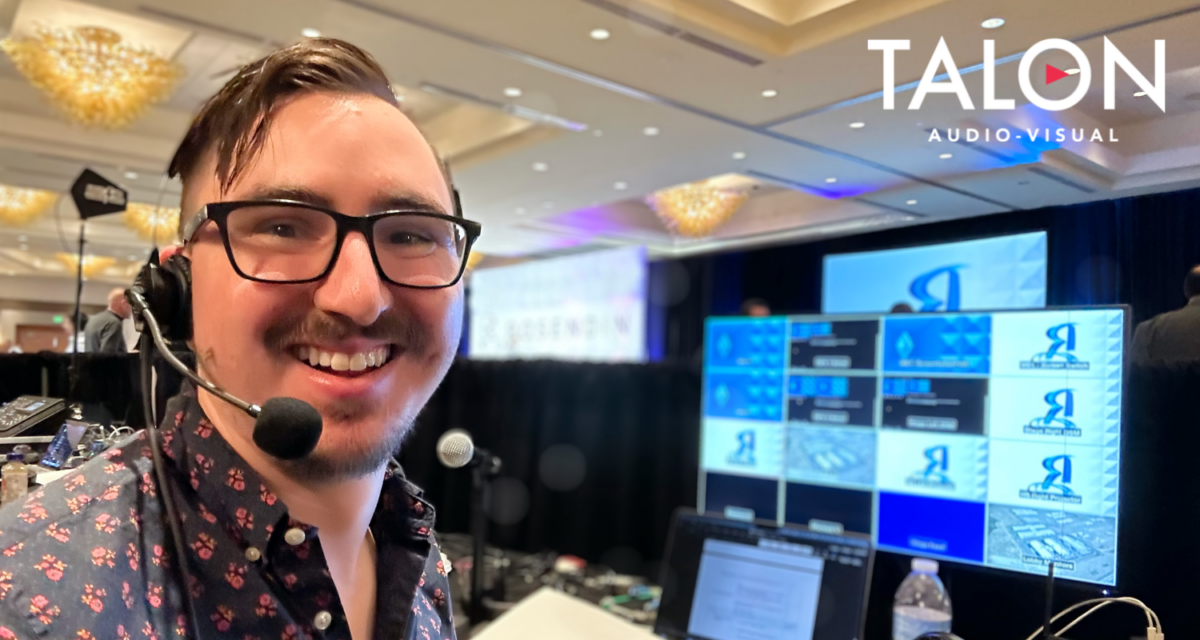Blog
Virtual Events Are Dead – Long Live Virtual Events

“I hate this virtual stuff” – A line I hear, often slightly salty, from events professionals, both in management and in the trenches. “Why are we still doing this Zoom stuff?”
The events industry is a weird mix of cutting-edge technologists and staunch traditionalists, and nowhere is this more evident than in the debate around digital-first events. Veteran event professionals and entry-level technicians alike are often vocal about their displeasure with digital-first events, having built their businesses and careers billing for boxes and hours. In many ways digital events are not just an uncomfortable technology evolution – to many, they feel like a threat to a business model honed over many years, with carefully crafted margins and relationships built over decades.
When hearing the term “virtual events” folks seem to think about hastily assembled Zoom analogs of in-person meetings, the panic of March 2020, and the pangs of fear as widespread event cancellations left an entire industry reeling. But what if instead of thinking about “virtual” as a poor substitute for the “real thing” we harness the power that a digital event strategy can increase margins, decrease event costs, reach a bigger audience, and increase the inclusiveness and accessibility of our event content?
Ultimately in the events industry, we’re in the storytelling business. Event producers are content creators. Events are content. How do we help our clients tell a great story, and have that story reach all the audiences they want to reach? Event technology is a hybrid industry, drawing from two long-standing storytelling traditions. In the events business, we’re a mix of theater and broadcast TV, and I think it’s incredibly important to honor both of those content creation legacies as we think about how to form a digital event strategy.
In-person events are as much theater as they are classroom, and by the same token, digital events aren’t conference calls – they are television. When we think of the model of a digital-first event, instead of imagining poorly lit webcam video with a choppy virtual background, think of the Super Bowl. The Super Bowl is a remote-first Hybrid Event, catered to a remote audience while still providing a coveted in-person experience. Not that the average digital-first event is going to have Super Bowl production budgets, but you don’t need millions of dollars to have a TV-Like broadcast experience for your remote audience. You need solid production fundamentals, a tight schedule, and a good story to tell.
In the events world, we set the stage, literally and figuratively, for our clients to come out and tell their stories. When we think about that stage, we need to see it in the eyes of the in-person attendees, and of the TV cameras that beam our events into the laptops, phones, and TV sets of digital attendees all over the world.
For the events industry colleagues who dismiss digital events as a passing fad, I’d point out that television has been broadcasting live events for 100 years, web-based live streaming has been around for nearly 30 years, and the often-maligned Zoom has been doing desktop video conferencing for ten years, so these technologies and techniques are part of a long history of both engineering and creative acumen that stretch back a century. Broadcast is not new and live video isn’t going away.
Over the past few years, it’s become clear to me that the events industry needs to step up to the challenge of helping our clients deliver excellent content to audiences both inside and outside the walls of the ballroom or theater. In the events world we have the opportunity to help our clients reach bigger audiences than ever before, to tell their stories in new ways, and to innovate, try new things, reduce travel costs, and include more people than ever before. The 2020 concept of a virtual event may be dead, but with so many opportunities to tell great stories and reach new audiences, I say, “Long live digital events!
-Tim Kerbavaz is a Technical Producer and Digital Events consultant at Talon Audio Visual, an event technology company focused on helping end clients, agencies, and other production professionals develop and execute digital event strategies, reach online audiences, and make their online and in-person events accessible to all. For more information visit https://www.talonaudiovisual.com or reach Tim on LinkedIn at https://www.linkedin.com/in/tkerbavaz/
